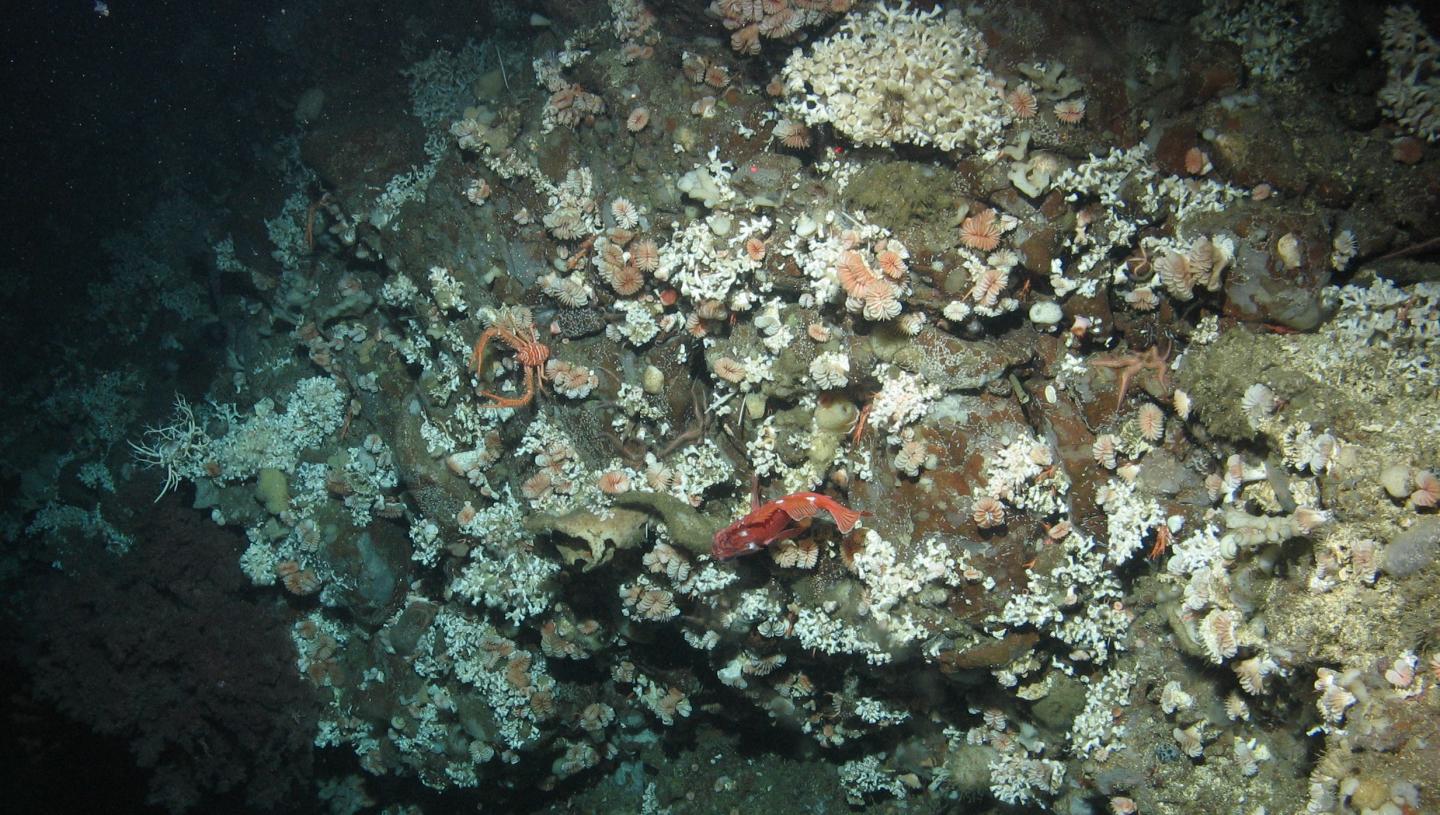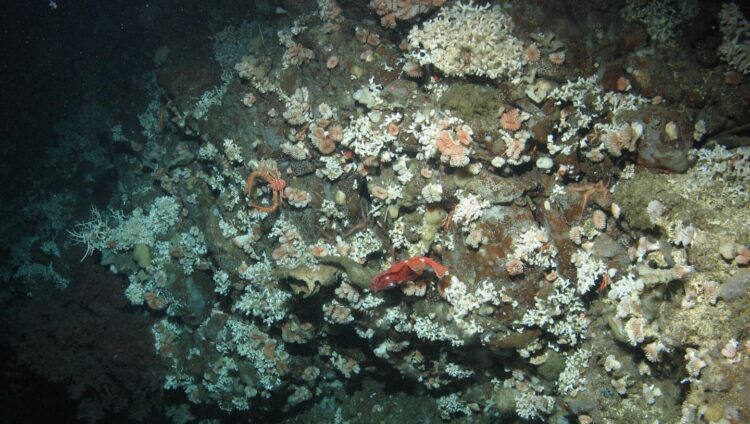
Credit: National Oceanic and Atmospheric Administration
Deep-sea coral reefs face challenges as changes to ocean chemistry triggered by climate change may cause their foundations to become brittle, a study suggests.
The underlying structures of the reefs – which are home to a multitude of aquatic life – could fracture as a result of increasing ocean acidity caused by rising levels of carbon dioxide.
Hundreds of metres below the surface of the ocean in Southern California, researchers measured the lowest – therefore the most acidic – pH level ever recorded on living coral reefs. The corals were then raised in the lab for one year under the same conditions.
Scientists observed that the skeletons of dead corals, which support and hold up living corals, had become porous due to ocean acidification and rapidly become too fragile to bear the weight of the reef above them.
Previous research has shown that ocean acidification can impact coral growth, but the new study demonstrates that porosity in corals – known as coralporosis – leads to weakening of their structure at critical locations.
This causes early breakage and crumbling, experts say, that may cause whole coral ecosystems to shrink dramatically in the future, leaving them only able to support a small fraction of the marine life they are home to today.
The findings complement recent evidence of porosity in tropical corals, but demonstrate that the threat posed by ocean acidification is far greater for deep-sea coral reefs.
Research was led by University of Edinburgh scientists, under the EU-funded ATLAS and iAtlantic projects, with researchers from Heriot-Watt University and the National Oceanic and Atmospheric Administration (NOAA).
The team identified how reefs could become fractured by analysing corals from the longest-running laboratory studies to date, and by diving with submersibles off US Pacific shores to observe how coral habitat is lost as the water becomes more acidic.
Dr Sebastian Hennige, of the University of Edinburgh’s School of GeoSciences, said: “This study highlights that a major threat to these wonderful deep-sea ecosystems is structural weakening caused by ocean acidification, driven by the increasing amounts of carbon dioxide we produce. While deep-sea reefs exist out of sight they are certainly not out of mind, and our work highlights how scientists from different disciplines and countries can join together to tackle global challenges.”
The corals in Southern California – one the most acidified reefs studied to date – are already experiencing the effects of climate change and exist in conditions that most deep-sea reefs are expected to encounter by the end of the century, scientists say.
Dr. Peter Etnoyer, of NOAA’s National Centers for Coastal Ocean Science, said: “Deep-sea corals growing off Southern California are a window into the future ocean. The region is a natural laboratory to study the effects of ocean acidification.”
Submersibles were launched from NOAA ships off Southern California, and were guided by Dr. Peter Etnoyer and graduate student Leslie Wickes.
The US team sampled live corals and returned them to the laboratory for experiments. The UK team applied engineering principles to demonstrate the rapid weakening of the skeletons and discovered a striking similarity to the weakening observed in human bones from osteoporosis.
The team says that the link between osteoporosis and coralporosis opens up a range of methods and concepts that can be adapted in the challenge of monitoring and predicting the fate of such fragile deep-sea ecosystems and the life they support.
Dr. Uwe Wolfram, of Heriot-Watt University, said: “By being able to adapt strategies to coral reefs that are used routinely to monitor osteoporosis and assess bone fracture risk, we may have powerful non-invasive tools at our disposal to monitor these fragile ecosystems.”
Tools developed as part of the project will aid understanding of when ocean ecosystems will change and how it will affect marine life.
This will better equip society to deal with how these vulnerable ecosystems can be protected in the future, and will support the UN Decade of Ocean Science – which starts in 2021 – to deliver the science we need, for the ocean we want, the team says.
Professor J Murray Roberts, of the University of Edinburgh’s School of GeoSciences, who leads the ATLAS and iAtlantic programmes, said: “Cold-water corals are truly the cities of the deep-sea providing homes to countless other animals. If we lose the corals the city crumbles. This project is a great example of how we can work across the Atlantic and Pacific Oceans to understand the impacts of rapidly changing ocean conditions.”
###
The research is published in the journal Frontiers in Marine Science. It was supported by the Natural Environment Research Council, Engineering and Physical Science Research Council, Marine Alliance of Science and Technology for Scotland, Diamond Light Source, NOAA, UK Research and Innovation Global Challenges Research Fund and the European Union’s Horizon 2020 Research and Innovation Programme’s ATLAS and iAtlantic projects.
Media Contact
Corin Campbell
[email protected]
Related Journal Article
http://dx.





